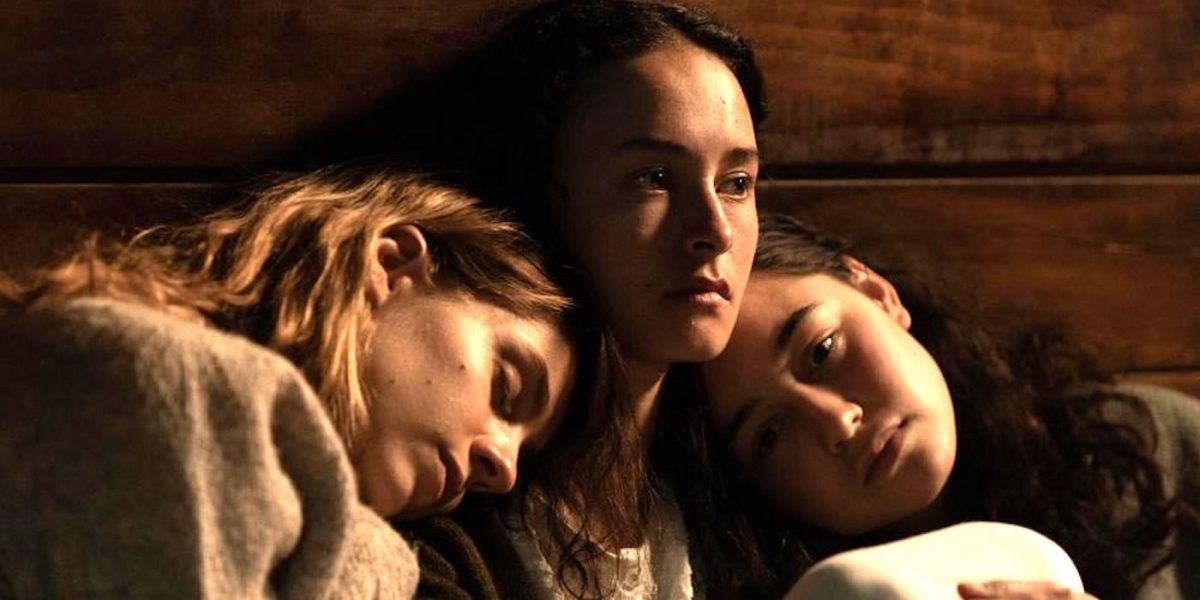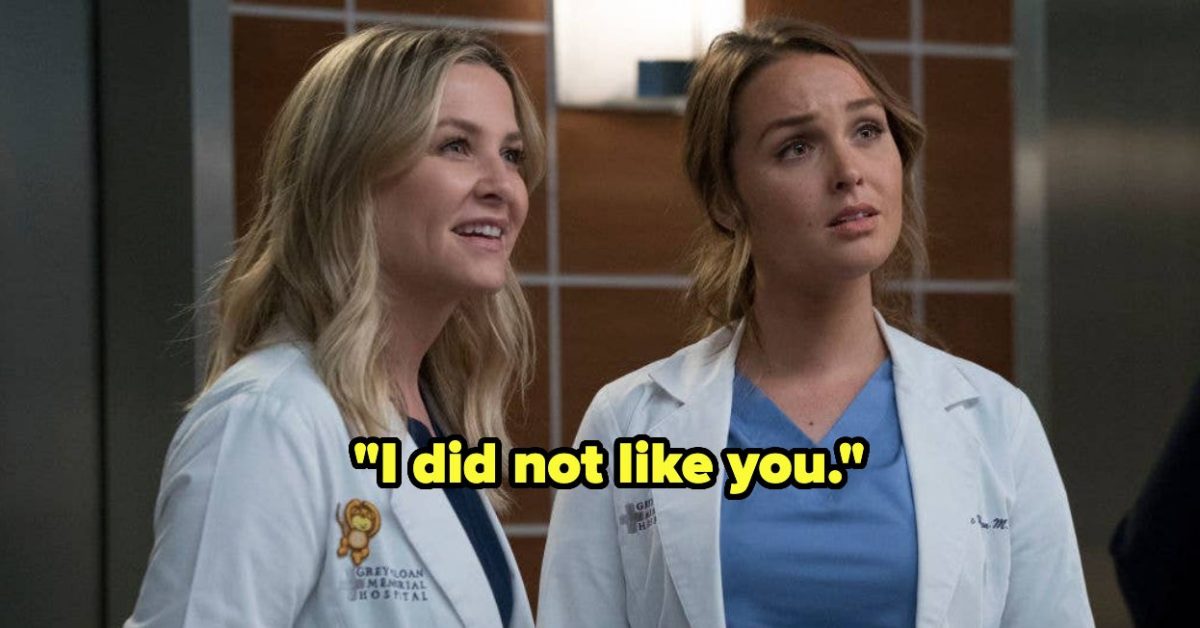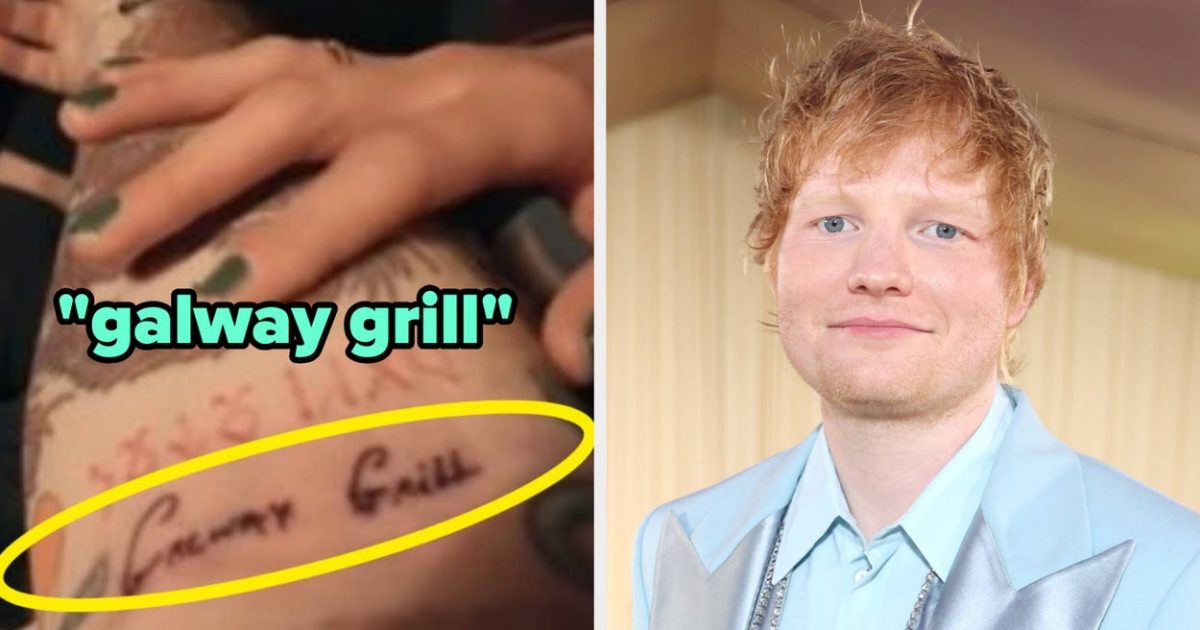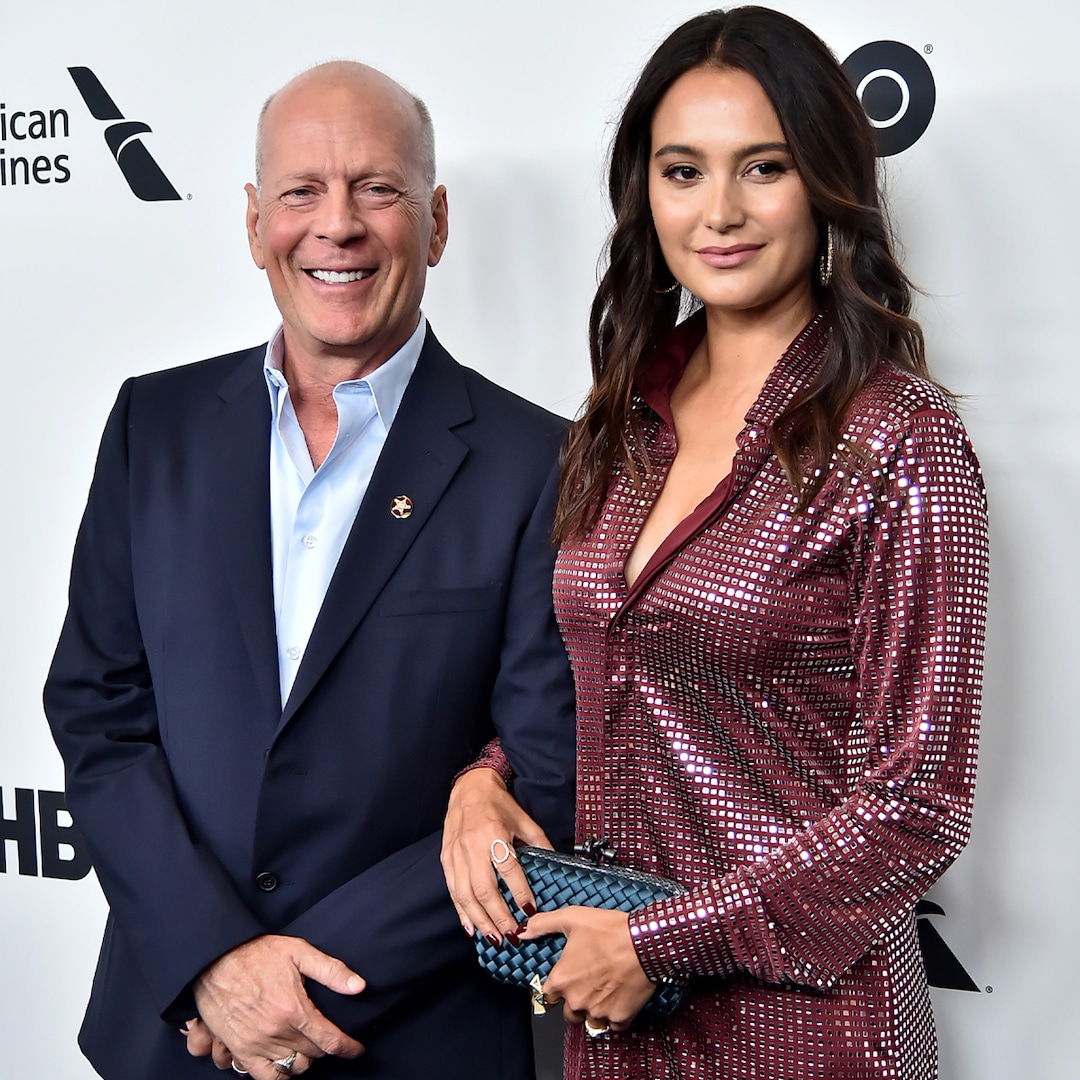
‘We Were Dangerous’ Review — A Funny and Frightening Tale of Friendship
Mar 17, 2024
The Big Picture
Effortlessly tackles dark subject matter with a light touch, making it surprisingly funny and inspiring.
Phenomenal performances elevate the film, showcasing unique and important perspectives.
A clunky conclusion and pacing issues detract slightly from the overall narrative depth.
I must admit, I was a little nervous about We Were Dangerous. Based on the provided synopsis and photo alone, it seemed like a bleak and horrifying way to spend a little under an hour and a half. And yet, my interest was piqued enough to check it out anyway, as female-centric coming-of-age stories — especially those centering on friendship — are extremely up my alley, and I’ve been wanting to see the excellent Erana James in another project since The Wilds’ untimely cancellation. Needless to say, I’m so happy I did, as it subverted my expectations in the most delightful of ways.
We Were Dangerous (2024)
Nellie, Daisy and Lou attend an institution for delinquent girls on an isolated island in 1954. The trio rail against the system, finding strength in their friendship but this is challenged when the school’s matron divides them.Release Date March 8, 2024 Director Josephine Stewart-Te Whiu Cast Erana James , Rima Te Wiata , Nathalie Morris , Manaia Hall Runtime 113 Minutes Main Genre Drama Writers Maddie Dai , Josephine Stewart-Te Whiu Budget Drama Studio(s) Fit Via Vi Film Productions , Piki Films Distributor(s) Fit Via Vi Film Productions , Piki Films
What Is ‘We Were Dangerous’ About?
Image via SXSW
We Were Dangerous centers on a group of young women in 1950s New Zealand at the School for Incorrigible and Delinquent Girls, the mission of which we learn through voiceover via the school’s matron (Rima Te Wiata) is to Christianize, civilize, and assimilate vagrants, whores, sex delinquents, queers, and the like (her words). Using the bible as its foundation, they will reform these girls, promising them marriage and a tranquil life of domesticity once they learn to behave. Unfortunately for the matron, not all of the girls want to be reformed. A few of them even go so far as to attempt to run away from the school. When they’re caught, the organization is moved to a remote island that formerly housed prisoners and lepers, making escape even more difficult.
The film focuses on a trio of resistant rebels. There’s Nellie (James), the de facto leader of sorts who comes from a large, underprivileged family. “It’s very hard to redeem a girl like Nellie,” the matron laments at one point, “a girl who believes there’s nothing wrong with her.” She was sent to the school after being caught stealing with Daisy (Manaia Hall), who’s spent her whole life being shuffled around foster homes. The two are cousins, though “not in the white sense,” a fact that initially confuses a very white Louisa (Nathalie Morris), a new arrival who is assigned to their living quarters. Her family is both very much alive and very wealthy, though they sent her away after they found her getting intimate with her female tutor. The three come from very different backgrounds, but they quickly develop a camaraderie with each other that helps them survive their brutal environment.
‘We Were Dangerous’ Is Both Funny and Frightening
As I mentioned, I worried We Were Dangerous was going to be overly bleak and horrifying, and to be fair, its subject matter absolutely is. Unthinkable atrocities are committed against these girls, and they suffer almost every kind of abuse imaginable in just 82 minutes: physical, emotional, verbal, religious, medical — the list goes on. The people running and funding this school are bigoted against just about every group that doesn’t fit the mold, too, meaning it’s overflowing with racism, sexism, homophobia, and ableism as well.
And yet, somehow, it’s also one of the funniest movies I’ve seen in a long time. Director Josephine Stewart-Te Whiu (who also penned the brilliant script along with Maddie Dai) smartly leans into the levity and joy of these girls and the absurdity of their oppressors. I couldn’t help but note welcome parallels to conversion therapy movies But I’m a Cheerleader and The Miseducation of Cameron Post in the way that it delicately and effortlessly tackles dark subject matter with a light touch. The uplifting, energetic score is filled with empowering beats and plucky vocals, helping infuse the film with a refreshing sense of life and celebration. The cinematography is simple but gorgeous — a breathtaking showcase of natural beauty.
But the success starts at the very beginning with the screenplay, which is both tight and sharp with its comedic beats. Each character’s voice is distinct and delicious, elevated by leaning into the rich culture in which they live. The young actors embody their characters completely, making them impossible not to root for from the get-go. “That stuff’s like vegemite — it has an infinite shelf life,” Nellie hilariously proclaims after finding an old bottle of alcohol. “Jesus isn’t friends with sex delinquents,” Daisy skeptically snips upon meeting Louisa. “I think you’ll find he was,” Louisa deadpans back.
Exchanges like these earn laughs, but they also serve to further highlight the ridiculousness and hypocrisy of its antagonists — its main one being the matron, played expertly by Te Wiata. When two students hang a sign crooked since one of them is taller, the matron barks at the shorter one to simply “grow up” without an ounce of sarcasm. Though it may seem a strange comparison, her performance reminds me of Olivia Colman’s Oscar-winning turn in The Favourite, as she’s trying so hard to hold onto a sense of authority and control while being undermined by scheming underlings at every turn.
‘We Were Dangerous’ Makes the Unknown Unbearable
But while the matron may be outrageous, that doesn’t mean she’s not genuinely terrifying. It’s quite the opposite, in fact, with the humor making the horror hit even harder. It’s a stark juxtaposition, seeing the girls loudly laughing and playing games in their native language one minute and being forced into a stuffy etiquette lesson the next. The violence the film shows isn’t gratuitous, which makes the moments when it does utilize it all the more shocking. A single slap can completely suck the air out of the room, effectively changing the entire tone in a split-second.
This is true for the rest of the brutal acts as well. Stewart-Te Whiu keeps the film from ever feeling exploitative by grounding us in the main trio’s perspectives with a natural sense of mystery permeating since they’re not entirely sure what’s going on behind the closed doors of the newly cleaned infirmary. The uncertainty makes it all the scarier and more sinister, such as when Nellie notes how one of her family members was sent to a place like this and came back a husk of herself, though she’s unsure of what they actually did to her. Vague warnings like “life’s easier if you don’t resist” are especially ominous when you don’t even know what exactly you’re resisting.
The film never gets overly graphic or heavyhanded with its theme of forced sterilization, and its restraint usually works in its favor. Its lean runtime and lithe storytelling are generally good things too, though I occasionally found myself wishing there was just a bit more meat for its young actors to play with. James will break your heart wide open with a single, silent look in one of the movie’s most devastating moments that happens after the matron finds scissors in her bunk. Seeing the fearless Nellie have a flash of true despair and vulnerability shows James’ ability for subtlety and range, and I wish the film allowed us to sit in it more. The film spends so much time establishing each of the trio’s layered and varied backgrounds, and while we certainly see how their upbringings affect how they move through life, there are some missed opportunities to see how these pasts provide both catalysts for conflict and opportunities for bonding with one another.
Structure and pacing are the main areas where the film struggles. The flashbacks of each girl’s past can start to feel a bit choppy, and the way the ending unfolds is unnecessarily clunky and confusing. It’s clear what the film is going for, but keeping one particular reveal as a twist is an odd choice for an otherwise relatively straightforward narrative. I was left wanting a little more — of these characters, of the political and historical implications of the plot, and even of the background of the island itself. Stewart-Te Whiu crafts such a specific world with such compelling dynamics that I wanted to dig into all of them more deeply and continue peeling back the limitless layers of the people, the normalized (nay, encouraged) monstrosities, and the culture of the setting alike.
We Were Dangerous might not be a perfect movie, but it’s an extremely special one that manages to do something equally impressive and important by showing the humanity and joy of those cruelly cast out and mistreated by society. Despite all of the highly distressing things we witness in the film, we’re left with a message of hope — an encouragement to fight for what’s right and a promise that you’ll never be alone when you do it. Stewart-Te Whiu is a new, unique, and vital voice in cinema, and it’s exciting to know that she’s just getting started.
We Were Dangerous (2024) REVIEW’We Were Dangerous’ is surprising and inspiring, using levity and joy to explore devastating subjectsProsThe film effortlessly tackles dark subject matter with a light touch.There are performances across the board.The film offers a unique, refreshing, and important perspective. ConsIt does build to a clunky and strangely structured conclusion.The experience left me wishing it dug a little deeper into characters and concepts.
We Were Dangerous had its World Premiere at the 2024 SXSW Film & TV Festival.
Publisher: Source link
"We Despised Each Other So Much That It Read As Love": 13 Costar Duos Who Did NOT Get Along
Diane Kruger said, "It kind of sucked. He's dead, so I can say that. But he wasn't the most pleasant person."View Entire Post › Disclaimer: This story is auto-aggregated by a computer program and has not been created or edited…
Dec 25, 2024
19 Best Experience Gifts for Everyone on Your List
Our writers and editors independently determine what we cover and recommend. When you buy through our links, E! may earn a commission. Learn more. As the holidays approach, the last loved one on your list is usually the hardest person to…
Dec 25, 2024
Celebs With Embarrassing Tattoo Mistakes Revealed
If read vertically from top to bottom and horizontally from right to left, which is how Japanese is read, the tattoo translates roughly to say "ring seven fingers." However, if the tattoo is read horizontally from left to right and then…
Dec 24, 2024
Bruce Willis’ Wife Emma Shares Family Photos Amid His Health Battle
Bruce Willis’ wife Emma Heming Willis is cherishing the good times. Almost two years after the Die Hard actor’s wife, his ex-wife Demi Moore, and his kids Rumer Willis, 36, Scout Willis, 33, Tallulah Willis, 30, Mabel Willis, 12, and Evelyn Willis, 10, announced that…
Dec 24, 2024











